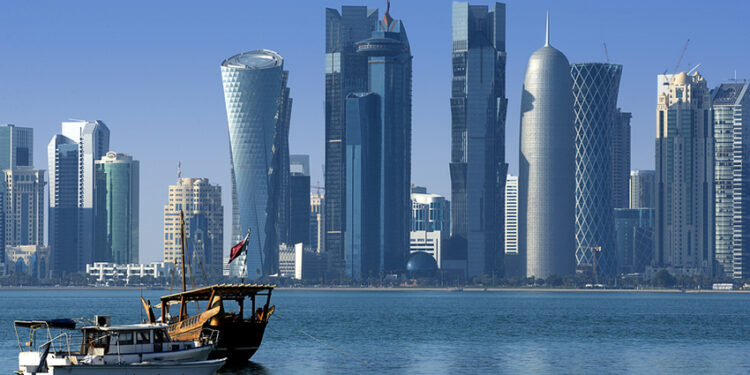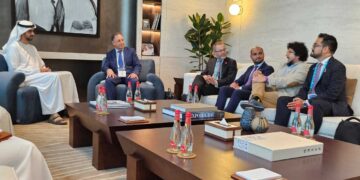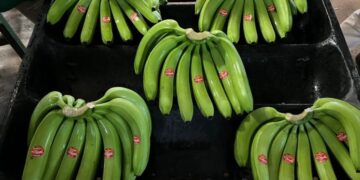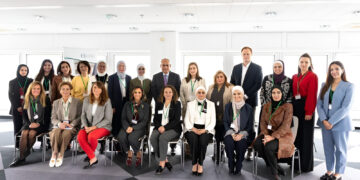Qatar has established itself as a crucial player in global trade, leveraging its strategic location, abundant natural resources, and business-friendly environment to foster international commerce. As one of the wealthiest countries in the world in terms of GDP per capita, Qatar’s trade business is driven by its vast energy exports and a growing diversification strategy focused on non-hydrocarbon sectors.
Key Export Sectors
Qatar’s export business is dominated by its energy sector, with liquefied natural gas (LNG), petroleum, and petrochemical products being the backbone of the country’s trade. The nation is among the world’s leading LNG producers, supplying energy to key markets in Asia, Europe, and North America.
Top Exports from Qatar:
- Liquefied Natural Gas (LNG) – Qatar is one of the world’s largest LNG exporters, with major customers including Japan, South Korea, China, and India.
- Crude Oil and Petroleum Products – Qatar exports significant volumes of crude oil, refined petroleum, and fuel oils.
- Petrochemicals – The country supplies ethylene, polyethylene, and ammonia, which are widely used in industrial applications.
- Fertilizers – Qatar is a major exporter of urea and ammonia-based fertilizers, benefiting from its natural gas resources.
- Aluminum and Steel Products – With large-scale industrial facilities, Qatar produces and exports aluminum and steel to various markets.
- Chemicals and Plastics – Qatar has developed a strong chemical and plastic industry, exporting polypropylene and polyethylene products.
Major Import Businesses
As Qatar continues to diversify its economy and support its growing infrastructure, the country imports a wide range of goods, including food, machinery, and construction materials.
Top Imports to Qatar:
- Machinery and Equipment – Industrial machinery, electrical components, and heavy equipment are essential for Qatar’s infrastructure projects.
- Vehicles and Automotive Parts – Cars, buses, and heavy-duty vehicles are significant imports, with brands from Japan, Germany, and the U.S. dominating the market.
- Food and Agricultural Products – Due to its desert climate, Qatar relies heavily on imports of meat, dairy, cereals, vegetables, and seafood from countries like Brazil, India, Australia, and Turkey.
- Pharmaceuticals and Medical Equipment – The healthcare sector is rapidly growing, leading to increased demand for imported medicines and medical technology.
- Construction Materials – With ongoing urban development, Qatar imports cement, steel, glass, and other raw materials for its construction projects.
- Consumer Goods – Luxury goods, clothing, electronics, and home appliances are among the most sought-after imports.
Trade and Economic Diversification
Qatar is actively working to diversify its economy beyond oil and gas, in line with Qatar National Vision 2030. The government has introduced several initiatives to encourage trade in non-energy sectors such as technology, manufacturing, and logistics.
- Free Zones and Special Economic Areas – Qatar has established Qatar Free Zones Authority (QFZA) to attract foreign investment in industries such as aviation, logistics, and information technology.
- Hamad Port and Hamad International Airport – Qatar’s advanced logistics infrastructure enhances its trade capabilities, making it a major hub for transshipment and re-exports.
- Bilateral Trade Agreements – Qatar has strengthened its international trade relations through partnerships with countries in Asia, Europe, and Africa, ensuring market access for Qatari exports and facilitating imports.
The Future of Trade in Qatar
Qatar’s trade sector is set to grow as the country invests in sustainable energy, digital transformation, and industrial expansion. While energy exports will remain dominant, non-oil trade is expected to gain prominence with advancements in manufacturing, technology, and logistics services.
With its stable economy, advanced infrastructure, and government-backed trade incentives, Qatar remains an attractive destination for global trade and investment, securing its position as a key player in the international business landscape.














